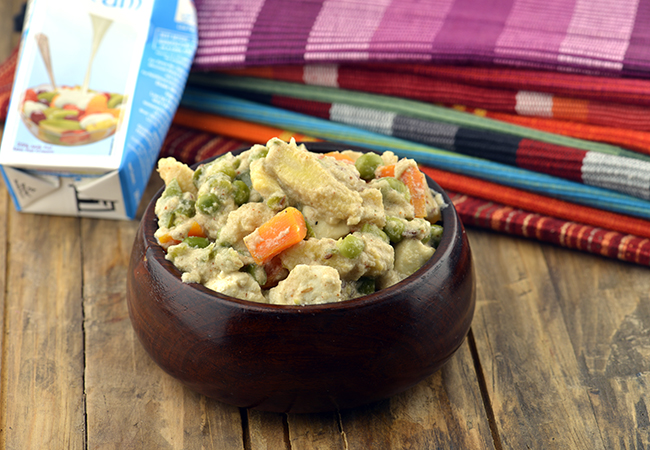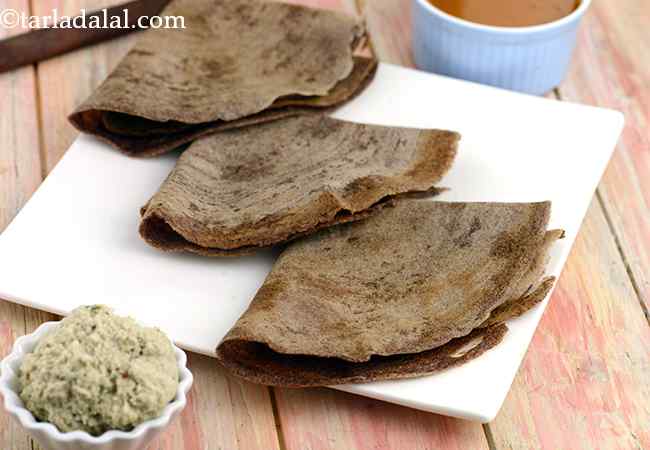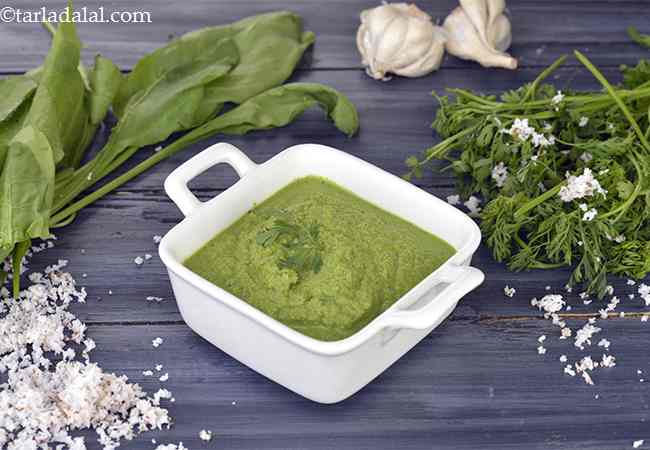138 calories for 1 appam of Appam ( How To Make Appam ), Cholesterol 0 mg, Carbohydrates 19.5g, Protein 1.9g, Fat 6.1g. Find how much fibre, iron, calcium, zinc, magnesium, phosphorus, sodium, potassium, folic acid is present in Appam ( How To Make Appam )
Click here to see Appam calories. Appam is a tasty white Indian pancake crisp on the sides with a soft centre. appam or palappam are a famous Kerala breakfast made from raw rice, coconut milk, dry yeast and a little bit of sugar.
Appam is a famous dish from the Keralite repertoire of South Indian cooking. This Kerala appam is an easy-to-make, instant version of the otherwise tough-to-make dish. Since yeast is used, the batter need not be fermented for long unlike the traditional version.
Notes on appam recipe. 1. The batter should rise, keep it in a warm place and it always depends on the weather conditions also. The batter will take time to rise if the weather outside is cold. The centre of the appam will always be thick. 2. Make sure the kadhai is hot when you make the appams. If the kadhai is not hot enough the batter will bounce back to the centre. 3. Dry yeast also should be dissolved and mixed well in the batter. 4. You need to use raw rice also known as (Kaccha chawal) in hindi which is readily available in any grocery store. And also see that you use thick coconut milk as you are adding warm water while grinding the rice. More water will split when you put in the appamchatty.
Serve
appam with slightly-sweetened coconut milk and
vegetable korma for a perfect meal!

Vegetable Korma ( How To Make Veg Korma)
Is Appam healthy?
Yes and No. So Appam is healthy and not healthy at the same time and depends who is having it. Appam is made up of rice, sugar, yeast, which not healthy ingredients.
What's good in the Appam.
Coconut Milk : Recent research says that not eating enough healthy fat can actually make fat. But you need to choose the type of fat correctly like coconut milk. And the answer is MCT (Medium Chain Triglycerides) – which goes directly to the liver and does not get stored as fat in body. Coconut milk contains some amount of potassium which is beneficial for those with high blood pressure.The lauric acid present in coconut milk has a positive effect on cholesterol levels improves heart health too. Read detailed benefits of coconut milk.
Coconut Oil : Coconut oil is a medium chain triglycerides (MCT’s). Unlike other fats, they go directly from the gut to the liver. From here, they are then used as a source of energy. As the calories in MCT’s are used straight away, they are less likely to be stored as fats in the body. MCT's have shown to improve your brain and memory function, they also give a boost to your energy levels and improve your endurance. The MCT in Coconut oil reduces the LDL cholesterol (bad cholesterol) while increasing the count of HDL cholesterol, maintaining normal blood pressure and good for diabetics. See detailed benefits of coconut oil.
What's problem in the Appam.
Rice : Here are the pros for rice. Rice is a great source of complex carbohydrates, which is an important source of energy for our body. Rice is low in fibre and therefore a good option for people suffering from diarrhoea. What's not good in rice. Foods like rice are high in Glycemic index are not suitable for weight loss, heart patients, diabetics as they affect the blood sugar control levels. See details of is white rice and parboiled rice good for you?
Sugar : Sugar used in the recipe is also called white poison. It is a simple carbohydrate with zero nutritional value. On intake, sugar will cause inflammation of the body which will last for many hours. It will spike your blood sugar level and shut down the fat burning process. This also causes high blood sugar levels in your body. The development of prediabetes comes from uncontrolled eating sugar and refined food products for many years and the classic symptom is if you have excess belly fat. This leads to diabetes and further onwards to heart attack, high blood pressure, strokes, impotence and kidney damage.
Can Diabetics, Heart patients and over weight individuals have Appam?
Appam is a moderate Glycemic Index recipe. Since, appam has a high amount of rice which is rich in simple carbohydrates and it is fermented that is - it is pre digested, it does not prove to be a healthy option for diabetics, heart patients and weight watchers. However, this Appam can be had for weight gain.
Diabetics can replace the rice with oats or ragi which will increase the fiber content and make recipes like Healthy Oats Dosa and Nachni Dosa.

Nachni Dosa
Can healthy individuals have Appam?
Yes, Appam works for healthy individuals. Appam is a fermented food which is easy to digest. Fermentation of foods increases the bioavailability of nutrients which helps the body to assimilate more nutrition. The microorganisms break down the complex protein, carbohydrates and fat efficiently thereby helping to assimilate more nutrients from the food.
What to have your Appam with?
Coconut based options are healthy coconut chutney made from coconut and coriander and coconut coriander green chutney for idlis dosa uttapam vada or serve it with a healthy sambar or coconut chutney.

Coconut Coriander Green Chutney for Dosa, Dosa Green Chutney